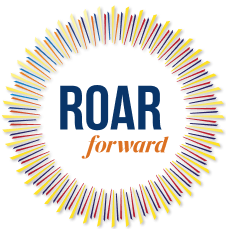Liz Plosser, Editor-in-Chief, Women’s Health
Integrate these five science-backed tips from the editors and advisors of Women’s Health into your daily life to feel even healthier and happier this year and beyond…
1. We need to resistance train at least three times a week.
Now is not the time to be trifling with those tiny pink weights. On the contrary, if you’re looking to maintain or even increase muscle mass (it naturally declines due to falling estrogen levels), you should be lifting heavy, says WH advisor Stacy T. Sims, PhD, an exercise physiologist and nutrition scientist. “It’s important to do heavy-load resistance training, especially as you get into late perimenopause,” she says. “Estrogen is responsible for lean mass development, as well as strength and power; it stimulates the satellite cell for muscle protein development, and it’s critical in the central nervous system for creating a muscle contraction.” Essentially, you can counteract the negative effects of estrogen loss by lifting heavy, which lights up the central nervous system to produce other chemicals that can take over where estrogen left off.
2. We’re probably not eating enough protein.
Humans need amino acids, the building blocks of protein, to mount a response to infection, as well as for just about every structure in the body—bone, liver, gut, tissues, hair, nails, skin, and the one that likely comes to mind first when you think of protein: muscle. “But people tend to only think of muscle and protein in relation to fitness, and that’s a mistake,” says Gabrielle Lyon, DO, founder of Muscle-Centric Medicine and a Women’s Health advisory board member. (Watch her recent TedX talk on muscle as the ultimate longevity hack here) Plus, aging bodies process protein less efficiently and need more of it to maintain muscle strength, bone health, and other functions. Start thinking of muscle as a healthy aging strategy, beyond the aesthetic aspect, suggests Dr. Lyon. One way to do that: Focus on high-quality protein, she says, which will protect you from many chronic diseases. Aim for at least 25g of protein in each meal.
3. Quality sleep is a health and well-being game changer.
Gone are the days of wearing how little we sleep as a badge of honor. (Phew!) Sleep deprivation affects eating habits, metabolic rate, and the hormones regulating metabolism. Aim for seven to eight hours a night, keeping your bedtime as constant as possible. Nicole Moshfegh, PsyD, a clinical psychologist in Los Angeles and author of The Book of Sleep, recommends creating the standard optimal conditions for sleep: a quiet, dark, cool (65 degrees) room without any distractions (e.g., smartphones). And once you’re ready for lights-out, “Lie there quietly, keep your eyes open, and try to mentally resist falling asleep,” she says—even if this seems counterintuitive. “What happens when people do that is they fall asleep much faster.”
4. We are grittier than we realize!
As we age, we tend to experience decreases in both our passion and growth mindset but increases in our grit, or the ability to persevere, according to a recent study in the International Journal of Environmental Research and Public Health. “It is very important that grit seems to not decrease with increasing age,” says study coauthor Monika Haga, PhD, a professor in physical education and sports at Norwegian University of Science and Technology. “This could indicate that the ability to keep on being active and have endurance/stamina is still there—both cognitively and physically—if the person finds meaningful activities to engage and participate in. Our research indicates that strong interest is the key for achievement.” To tap into that can-do attitude, think back on a time when you displayed true grit—whether it was giving birth to your first child or finishing that half-marathon—and harness those feelings of confidence and achievement. With positive thinking and a willingness to succeed, so much is possible in your 40s—and beyond.
5. Now is the time to dream big…really big.
It’s not just your body and mindset that can get better with age. It may cross over into innovation and successful entrepreneurship too. Older entrepreneurs actually outperform younger ones, according to recent research published in AER: Insights 2020. Yes, that vision of a wunderkind founder making millions while sitting around in a hoodie? Erase it from your brain. Consider this: A 50-year-old founder is almost twice as likely to achieve growth as a 30-year-old one. After 35, there are “increased success probabilities” that outpace those of 25-year-olds. Another large surge in performance comes at age 46 and is sustained to age 60. It’s never too late, and you may find more success later.

